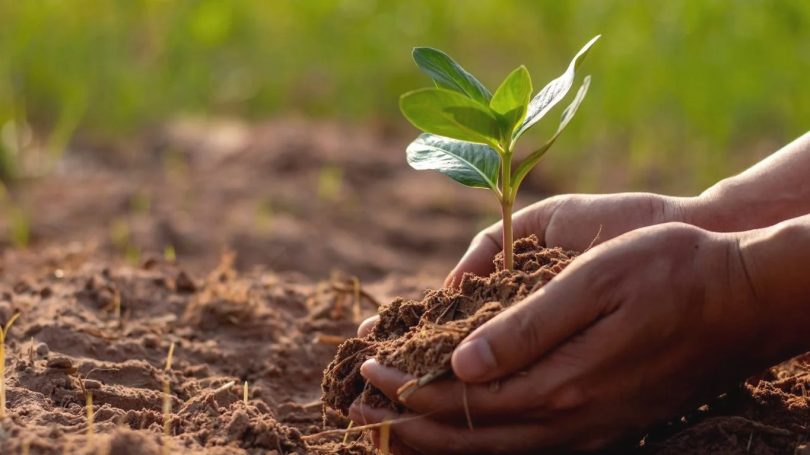
-
Phone:
+91 934 567 891 -
For Investments:
investment@farmmyland.in -
For Partnerships:
partnerships@farmmyland.in

When we think about agriculture, we often focus on seeds, irrigation, fertilizers, and crop yields. However, one of the most overlooked yet crucial factors in farming is soil health. Soil is not just dirt—it's a living, breathing ecosystem that determines the success of every harvest.
Healthy soil sustains plant growth, improves water retention, and enhances nutrient absorption. Yet, over 52% of India’s agricultural land suffers from soil degradation, leading to declining yields and food insecurity. In this article, we’ll explore why soil health matters, how modern agricultural practices are harming it, and what can be done to restore it—including how projects like Farm My Land are working toward sustainable solutions.
Soil health refers to the soil’s ability to function as a vital ecosystem that supports plants, animals, and humans. It is determined by several factors:
Despite being the foundation of agriculture, soil is deteriorating due to harmful farming practices. Some of the key contributors include:
Farmers often use chemical fertilizers and pesticides to boost crop yields, but these chemicals kill beneficial soil microbes, disrupt nutrient balance, and lead to long-term soil degradation.
Growing the same crop repeatedly on the same land depletes specific nutrients from the soil, making it infertile over time.
Plowing too frequently destroys soil structure, leading to erosion and loss of organic matter.
Excessive irrigation leads to salinity buildup, while inadequate water supply weakens soil fertility.
Rising temperatures, erratic rainfall, and extreme weather conditions accelerate soil degradation and reduce its productivity.
If soil degradation continues, future generations will struggle with food production. But the good news is soil can be revived with sustainable practices. Here’s how:
Instead of growing the same crop every season, rotating crops replenishes different nutrients and prevents soil depletion. Companion planting—growing certain crops together—also enhances soil fertility.
Using natural compost, green manure, and biofertilizers improves soil structure and microbial activity while reducing dependency on chemicals.
Reducing tillage helps retain soil moisture and prevents erosion. Cover crops like legumes naturally enrich the soil with nitrogen.
Techniques like hydroponics and polyfarming, used by Farm My Land, focus on sustainable cultivation without depleting soil nutrients. These methods maximize productivity while protecting soil ecosystems.
By using soil testing kits and AI-driven analytics, farmers can determine the exact nutrient needs of their land and apply fertilizers more efficiently.
Without healthy soil, India faces a serious food security crisis. If farmers don’t take action today, crop yields will continue to decline, forcing India to import more food and increasing prices for consumers.
This is why initiatives like Farm My Land are focusing on modern, soil-friendly agricultural techniques to ensure that farming is sustainable not just for today, but for the next 100 years.
Soil is the silent hero of agriculture. It feeds us, supports ecosystems, and plays a vital role in climate regulation. However, the way we treat soil today will determine our agricultural future.
By embracing soil restoration techniques, farmers can increase productivity, reduce costs, and contribute to a more sustainable India. Whether you are a farmer, consumer, or agricultural entrepreneur, understanding soil health is the first step toward a healthier, more resilient food system.
At Farm My Land, we are committed to adopting and promoting soil-friendly farming practices to ensure that India’s land remains fertile for generations to come.
Let’s rebuild our soil—one farm at a time.